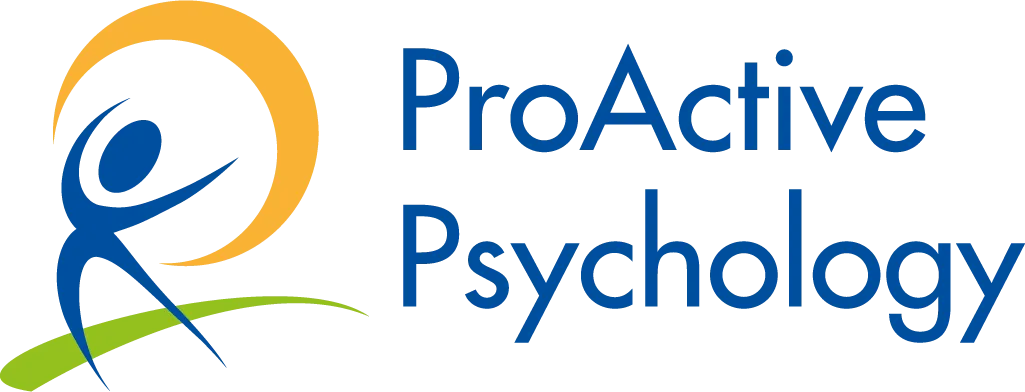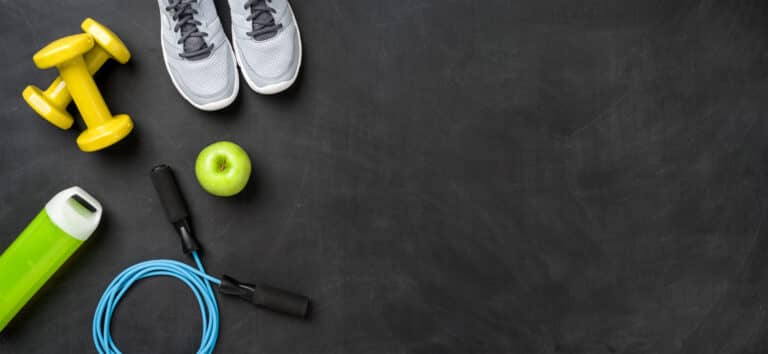
Note: The examples in this article are fictional and included only to help illustrate how R U OK? conversations can unfold in everyday life.
Most people can recall a time when a friend, colleague, or family member didn’t seem themselves — perhaps they were quieter than usual, distracted, or carrying an invisible weight. It’s easy to notice these signs, yet often harder to a sk the question that could make a real difference: “Are you OK?”
A simple check-in can serve as a beacon at the entrance of a dark tunnel. It doesn’t need to light the entire path, just enough for someone to take the next step forward. Still, many hesitate out of fear — fear of saying the wrong thing, of making things worse, or of not knowing how to respond.
This is where R U OK?, a national suicide prevention charity, offers guidance. Their message is clear: everyone has a role to play in looking out for each other. It’s not just about R U OK? Once a year, it’s about weaving conversations of care into everyday life. Whether an individual, a workplace leader, a teacher, or part of a community group, each person can spark a conversation that could change — and even save — a life.
Helping a Friend or Loved One
When it comes to supporting someone close, many underestimate the impact they can have. It doesn’t take years of training to notice when something isn’t right — it only takes care and a willingness to ask. It’s much like a neighbour hearing a creak in the roof. They don’t need to be a builder to knock on the door and say, “Have you noticed that noise? Do you want me to stand with you while you check it out?”
Take Anna, for example. Her sister had been skipping family dinners and had grown quiet, leaving behind her usual sense of humour. She felt uncertain about raising it, but one evening over a cup of tea, she said, “You’ve seemed a bit different lately — are you OK?” That simple, caring question opened the door to a heartfelt conversation. It didn’t solve everything instantly, but it gave her sister permission to share what she had been holding in.
When signs like mood changes, withdrawal, or stressful life events appear, it’s worth trusting intuition and reaching out. The R U OK? Framework makes this easier by breaking it into four steps:
- Ask — choose the right moment and start the conversation.
- Listen — offer full attention without judgment.
- Encourage action — help the person think about steps that could support them.
- Check in — follow up later to show ongoing care.
Perfect words aren’t required. What matters most is genuine presence. A conversation may not resolve every problem, but it can remind someone that they are not alone — and that reminder can be the first step toward change.
For the Workplace, Supporting Colleagues and Staff
Workplaces are often where stress first begins to appear. Deadlines, shifting responsibilities, or personal struggles that carry over into the office can leave employees feeling overwhelmed. The problem is that most colleagues and managers notice the changes but remain silent, worried about crossing boundaries or saying something wrong. That silence can allow small struggles to grow into burnout or deeper mental health concerns.
R U OK? steps into that gap with a clear guide: every workplace can foster a culture where asking “Are you OK?” is just as natural as asking “How’s that project going?” Managers, team leaders, and peers all play a role in incorporating meaningful check-ins into the work rhythm.
The plan is simple:
- Lead by example — When managers model open, supportive conversations, staff feel safer to do the same.
- Use everyday moments — A quick check-in before a meeting, a chat over coffee, or a quiet word in the break room can all be entry points.
- Draw on resources — Free R U OK? workplace posters, conversation guides, and flowcharts provide practical prompts and language that take the guesswork out of these talks.
Consider the story of David, a team leader in a mid-sized firm. He noticed one of his most reliable colleagues had gone quiet in meetings and was missing small details in their work. Instead of ignoring it, David asked if everything was okay. That short conversation revealed financial stress that his colleague had been carrying alone. With early support from HR and a referral to counselling, the employee was able to regain balance before the pressure became overwhelming.
The success of these conversations isn’t just about preventing crisis — it’s about building stronger, more connected teams. A workplace where people feel safe to speak up is one where productivity improves, staff feel valued, and trust grows. R U OK? day offers an annual opportunity to highlight this message through morning teas, team-building events, or “Wear Yellow” days. But the real impact comes when workplaces adopt the habit of asking any day of the year.
For Schools, Starting Early
Schools are often the first place where young people learn how to relate to each other beyond their families. The challenge is that many children and teens feel pressure to hide their struggles, worried about standing out or being judged. Teachers and parents might notice subtle signs — a student withdrawing from friends, snapping more easily, or letting schoolwork slide — but aren’t always sure how to respond.
R U OK? guides educators by showing that it’s never too early to normalise caring conversations. Whether in the playground, classroom, or during pastoral care, young people benefit when kindness and empathy are part of daily learning. By introducing simple tools, schools can give students confidence to both ask for help and offer it to their peers.
The plan for schools is practical:
- Use age-appropriate resources — R U OK? provides printable activities, lesson plans, and videos tailored for different year levels, from preschool through to secondary school.
- Encourage peer support — Programs like #FriendBetter help teens recognise when their friends might be struggling and provide them with the language to start a conversation.
- Make learning interactive — Tools like Healthy Harold’s interactive video journey allow younger students to practise conversations in a safe, playful setting.
Imagine a Year 6 class that created an “R U OK? Wall.” Each student wrote encouraging notes and stuck them up for others to read. One girl later admitted she had been anxious about keeping up with her homework. Seeing those messages gave her the courage to talk to a friend, who then supported her in speaking with their teacher.
The outcome is powerful. When students see that checking in is normal, they grow up knowing that emotions can be spoken about openly, not hidden. For schools, R U OK? day is an ideal time to bring the community together with assemblies, yellow-themed activities, or kindness challenges. But just like in workplaces, the most tremendous success comes when conversations continue every day, shaping the next generation to value connection as much as achievement.
For Communities and Volunteers – Making the Message Bigger
Communities are the heartbeat of connection. Local sports clubs, faith groups, service organisations, and neighbourhood networks all bring people together. Yet even in these spaces, it’s easy for someone’s struggles to remain hidden in plain sight. A teammate may suddenly skip training, a long-time volunteer may quietly withdraw, or a neighbour may stop attending community events. The problem is that without intentional conversations, these signs can pass unnoticed.
R U OK? positions communities as powerful guides in changing this pattern. By spreading the message and modelling caring conversations, groups can make asking “Are you OK?” a natural part of everyday life.
The plan for communities is straightforward:
- Host meaningful events — Morning teas, sports days, market stalls, or local BBQs provide relaxed spaces where conversations can start.
- Share the message widely — post posters in libraries, use coasters in cafés, and run social media campaigns using #RUOKDay to keep the question visible.
- Use tailored resources — R U OK? offers specialised kits for sports clubs, rural communities, seniors, LGBTIQ+ groups, and more, ensuring every community finds tools that fit their context.
Picture a regional footy club where the coach introduced the four R U OK? steps during a team huddle. Later, one player checked in on a mate who had been unusually withdrawn after an injury had sidelined him. That short, caring conversation gave the injured player confidence to seek support and feel less isolated. (This is a fictionalised story, but it reflects the kinds of real situations many communities experience.)
The success is twofold: individuals receive the support they need, and the community grows stronger through trust and care. R U OK? day often serves as the spark — with yellow banners across town, shared meals, and public talks — but the real power is when these actions ripple out all year, creating communities where no one feels they have to struggle alone.
Turning Conversations into Change
Across homes, workplaces, schools, and communities, the message is the same: everyone can make a difference with a simple question. The external problem — people feeling isolated or overwhelmed — becomes manageable when others step in with care and support. The internal problem — the fear of not knowing what to say — eases once the four steps (Ask, Listen, Encourage action, Check in) are learned and practised.
The success story is clear. When individuals trust their instincts, workplaces lead with empathy, schools teach kindness from an early age, and communities share the message widely, people feel less alone. Small conversations create significant change.
But there’s also a more profound truth: sometimes the struggles shared in an R U OK? conversation need more than a chat with a friend. This is where professional support makes all the difference.
R U OK? day, coming this September 11th 2025, is a reminder to check in with those around us. It’s also a chance to reflect: if a conversation shows someone is facing more than they can handle, what’s the next step?
At ProActive Psychology, our team is here to provide that next step. We offer:
- Individual therapy — one-on-one support for stress, anxiety, depression, or life challenges.
- Group therapy programs — safe, supportive spaces where people can connect and learn they’re not alone.
The vision is simple: imagine a life where no one feels they have to carry their struggles in silence. It starts with asking “Are you OK?” — and continues with professional care when needed.
Take action today. Reach out to ProActive Psychology to find the proper support for yourself or someone you care about. Let’s keep the conversation going — on R U OK? day and every day.
References
- R U OK? (2023) About R U OK? Available at: https://www.ruok.org.au/about (Accessed: 1 September 2025).
- R U OK? (2023) How to ask R U OK? Available at: https://www.ruok.org.au/how-to-ask (Accessed: 1 September 2025).
- R U OK? (2023) Signs it’s time to ask Available at: https://www.ruok.org.au/signs-it’s-time-to-ask (Accessed: 1 September 2025).
- R U OK? (2023) At Work Available at: https://www.ruok.org.au/work (Accessed: 1 September 2025).
- R U OK? (2023) At School Available at: https://www.ruok.org.au/education (Accessed: 1 September 2025).
- R U OK? (2023) In Your Community Available at: https://www.ruok.org.au/community (Accessed: 1 September 2025).
- R U OK? (2023) R U OK?Day Available at: https://www.ruok.org.au/join-r-u-ok-day (Accessed: 1 September 2025).


